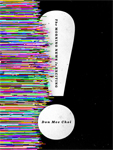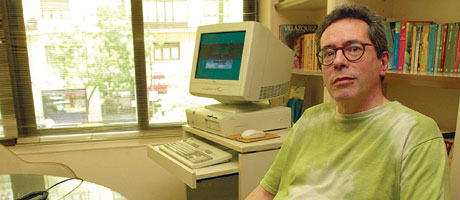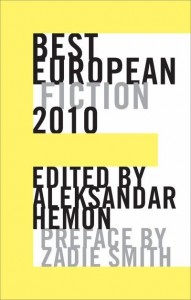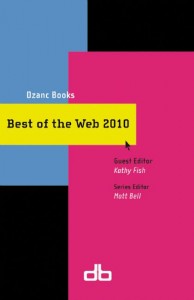Lily Hoang
https://literature.ucsd.edu/people/faculty/lhoang.html
Lily Hoang has published some books and won some awards. She is Director of the MFA in Writing at UC San Diego.
https://literature.ucsd.edu/people/faculty/lhoang.html
Lily Hoang has published some books and won some awards. She is Director of the MFA in Writing at UC San Diego.
I’ve been feeling disappointed in books lately. Whereas I’ve encountered many well-written books, they’ve lacked something—a politic, perhaps, or maybe something as simple as a point. I’ve found myself reading half a book, losing interest, the well-crafted sentence not enough to compel me to completion. But then, yesterday, as I was rushing out the door to go to a dentist appointment, I remembered this book that Johannes Goransson had sent me, a new Action Book, and I thought maybe this would be different. And it was.

Don Mee Choi’s The Morning News is Exciting is perhaps one of the most exciting books I’ve read recently. A collection of poetry or prose or prose poetry or poetic prose, whatever, genre is so passé these days, Choi’s book challenges not only genre but also the politics of colonialism, post-colonialism, empire, and identity. As cutting as it is tender, as angry as it is intelligent, this is not a book for the faint-hearted reader.

“The real story, which we have grown unaccustomed to, is chemically free of explanation. . . . The story is always about something unexplainable. The art of narration declines as explanations are added.” -Cesar Aira
A few days ago, I wrote a scene where my protagonist dreams she’s in a huge cake maze, like a maze made out of gigantic cakes. This was her dream birthday party, but there was no way for anyone to eat the cake, so she ran to the kitchen to get spoons, spoons for every mouth! Inside, she faced a second labyrinth: an ocean of tarp that bit at her, obstructing her from the silverware drawer.
A few years ago, I had a dream where I was under attack in this poet’s house. It’s a big house, red brick, gorgeous really. Out of nowhere, an older writer strolls in drinking a beer. Nothing else happened. The attack stopped. I was safe. Later, I told her about my dream. This was years ago. She told me she was a recovering alcoholic. I was so embarrassed, I don’t even remember how I reacted.
I can’t tell you how many short stories I’ve read that end with “and then he/she/it wakes up.” It’s the lamest kind of trick.
Which is why I found Inception potentially very interesting but in the end quite disappointing.
http://www.youtube.com/watch?v=S3XzUYd6nrU&feature=related
I ask this question with all sincerity: Why would people actively choose to read Twilight over any other good book of fiction? Psychologically, wtf are they thinking?
 In this week’s NYRB, Tim Parks reviewed Best European Fiction 2010, an anthology published by Dalkey, edited and with an introduction by Aleksandar Hemon and a forward by Zadie Smith. Parks discusses the demographic of contributors, mentioning that Europe isn’t fully represented in this anthology of “best European” writing. Heavy-hitting writer countries like Germany, Sweden, Greece, and the Czech Republic are absent. So I wonder: Would an anthology of “Best American” writing need contributors from every state? I’d examine my copy of Best American, but I don’t own it. Someone else, please, do.
In this week’s NYRB, Tim Parks reviewed Best European Fiction 2010, an anthology published by Dalkey, edited and with an introduction by Aleksandar Hemon and a forward by Zadie Smith. Parks discusses the demographic of contributors, mentioning that Europe isn’t fully represented in this anthology of “best European” writing. Heavy-hitting writer countries like Germany, Sweden, Greece, and the Czech Republic are absent. So I wonder: Would an anthology of “Best American” writing need contributors from every state? I’d examine my copy of Best American, but I don’t own it. Someone else, please, do.
Parks goes on to say:
“Represented” is hardly the right word. Many of the stories do not take place in the writers’ native countries: the pieces from Castilian Spain and Serbia take place in France, the French story in Japan, the stories from Poland and Macedonia in Austria, the story from Croatia in Hungary, the story from England in France; most curiously, the story translated from Gaelic tells of an old blind clairvoyant in rural Bolivia. / I have no problem with this. All the contributions are interesting and some impressive. That is enough for me. But it does make one wonder whether we are learning much about other cultures from this venture, whether it is true, as Hemon claims, that “ceaseless” and “immediate” translation of literature from abroad is a “profound, non-negotiable need.”
 Most contributors, it would seem via FB—because that’s how I get a lot of my non-news news—of the Best of the Web 2010 anthology have gotten their contributor copies. I have not yet, so I can’t make any testaments to how great or not great it is. I’m pretty sure, given that Kathy Fish and Matt Bell are the editors, that it’s a stunning collection of writing originally published on the web.
Most contributors, it would seem via FB—because that’s how I get a lot of my non-news news—of the Best of the Web 2010 anthology have gotten their contributor copies. I have not yet, so I can’t make any testaments to how great or not great it is. I’m pretty sure, given that Kathy Fish and Matt Bell are the editors, that it’s a stunning collection of writing originally published on the web.
This past week, Time Out Chicago reviewed BoTW 2010. Though quite brief, Jonathan Messinger gave it a positive review, noting how difficult anthologies are and the unimaginable task of combing through the seemingly self-exponentiating number of things published on the web. He ended with this:
Of course, we all know the Internet is home to just about anything our brains can Google. But what Best of the Web does—aside from doing the work of finding great writing so we don’t have to—is make a case for it as an ideal literary medium.
And this is where I question things. I have a story in BoTW. I publish on the web. I like publishing on the web, I really do. But I also like paper. Yummm, wasteful unsustainable paper: I can’t get enough of it. I love to print out manuscripts. I love to mark up manuscripts. I even love how heavy it is in my bag, how much space it takes up, and on and on. I love books published on paper, bound in paper, I probably don’t need to go on. Needless to say, I’m not as “with the times” as Nick.
Earlier this morning, probably around 6am or so, I was writing, not an unusual thing. I wrote the phrase “curry favor.” Then, I thought: Maybe it wasn’t curry favor but curry flavor, or maybe it was carry favor, though I was pretty sure my original word choice was right.
So rather than continue writing, which is what I should’ve done, I went to Google…
Many people believe that “to curry favor” originated from the mishearing of curry flavor, which was my error as well. It is in fact based on a mishearing, though not “favor” for “flavor” but “favor” for “favel.”
This Ain’t Rosedale Library is one of Canada coolest bookstores. Seriously: even the Guardian thinks so. (They said it was #8 in the world!!) I found the bookstore on accident. I was in Toronto to give a reading and had some time to pass, so I walked around until I found this little bookstore, there were hipsters hanging outside (and in), which would usually be a deterrent (I find them intimidating), but then, I saw a glimmer, yes, I saw Rikki Ducornet’s One Marvelous Thing displayed in the window. Next to it, wow, Jesse Ball, and suddenly, like magic, I was inside the store, only it wasn’t a store, it was like looking at the bookshelves I always wanted. The whole store was filled with beautiful indie books, both from the States and Canada. It was a candy store, or maybe one of those medicinal marijuana stores they’re rumored to have in California, or maybe it was like getting to heaven and finding yourself with 72 beautiful virgins: that was This Ain’t Rosedale Library to me.
Yes, I know I linked this clip a couple weeks ago. But seriously, I can’t watch this video enough. Any time I’m feeling low, I think to myself: At least I can put a burger in my mouth. Ok, so I don’t eat meat. I’ll rephrase: At least I can put a veggie burger in my mouth.
http://www.youtube.com/watch?v=Xp0zlqdSsEo
Much like David Hasselhoff, I am a mess. Not in the “I’m so drunk I can’t put food into my mouth” kind of way, but literally: I am a mess. I am messy. My desk has enough space for my laptop to sit flat, but otherwise, I’ve got stacks of papers–manuscripts, my own and others’, half-opened bills, half-filled out contracts, old insurance cards, random sheets of paper, who knows what’s important and what isn’t –books I’m half done reading, at least eight notebooks of various shades and sizes, and pens, blue Bics, like a dozen of them, rubber bands and barrettes.